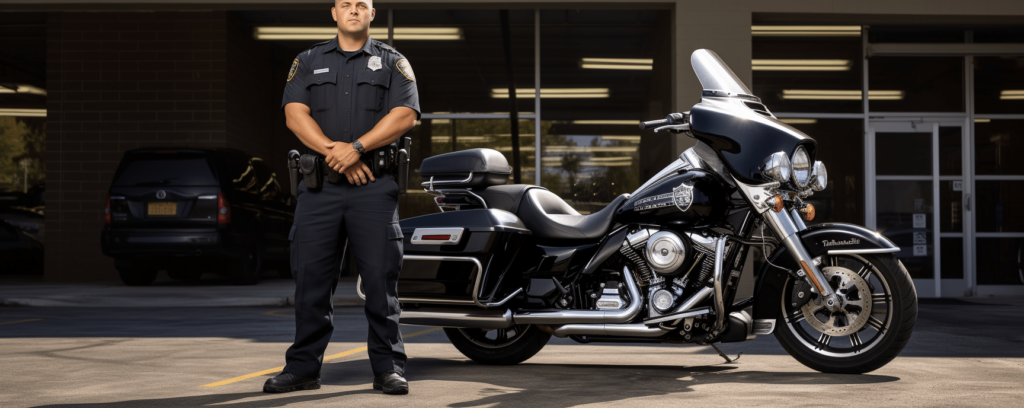Kentucky Motorcycle Laws: Stay Safe and Compliant on the Road
Last updated Wednesday, October 30th, 2024

If you’re searching for ‘Kentucky motorcycle laws,’ you likely want to ride legally and safely. This article immediately dives into key regulations, from licensing and helmet requirements to equipment checks and liability insurance, to help you comply with the law and stay protected on Kentucky roads.
Key Takeaways
- Motorcyclists in Kentucky must have a motorcycle license, permit, or endorsement, with special provisions for riders under 18 and a required safety course for first-time applicants.
- Kentucky law mandates helmet use for riders under 21, those with instructional permits, and operators licensed for less than a year, while insurance coverage with minimum liability limits is compulsory for all motorcyclists.
- Compliance with equipment regulations is essential for motorcycle legality, and understanding post-accident steps and comparative negligence laws can critically impact health, legal standing, and financial outcomes after an accident.
Navigating Kentucky Motorcycle License Requirements
In Kentucky, the journey to the open road begins with obtaining a motorcycle license. The state sets the minimum years of age for a motorcycle permit at 18, unless the individual already holds a valid motor vehicle operator’s license. For individuals under 18, a parent or legal guardian’s signature is required on their application. This regulation ensures that young riders are appropriately supervised and have the consent of a responsible adult.
Legally operating a motorcycle on Kentucky’s roads requires possession of a valid operator license with a valid motorcycle operator’s endorsement, a separate motorcycle license, or a Kentucky motorcycle permit. These licenses and permits are issued at Driver Licensing Regional Offices or the applicant’s county Circuit Court Clerk’s office. For first-time applicants, a motorcycle safety course through the Motorcycle Safety Education Program (MSEP), also known as the motorcycle rider education program, is mandatory. Once the course is completed, the motorcycle skills test may be waived. It is also important to study the Kentucky motorcycle manual to familiarize yourself with the state’s specific rules and regulations.
Riding without a valid motorcycle license or permit can lead to legal repercussions, including the prevention of operating a motorcycle on public roads. Hence, comprehending and adhering to Kentucky’s motorcycle license requirements is vital for both your safety and your legal standing as a rider.
Understanding Kentucky’s Helmet and Safety Gear Laws
Kentucky motorcycle helmet laws are designed with the rider’s safety in mind. Here are the requirements:
- Riders under the age of 21, regardless of whether they are operators or passengers, are required to wear a helmet that meets federal safety standards.
- If you’re operating a motorcycle on an instruction permit, regardless of your age, you must wear a DOT-approved helmet.
- The same requirement applies to riders who have held their motorcycle operator’s license for less than a year.
On the other hand, Kentucky law does not mandate riders over the age of 21, who have either no permit or have had their motorcycle license for more than a year, to wear helmets. However, wearing a helmet significantly enhances rider safety by preventing facial injuries and traumatic brain injuries; nearly 2,000 lives are estimated to be saved annually because of helmet use among motorcyclists.
Kentucky law fervently encourages riders of all ages and experience levels to adhere to helmet laws, significantly reducing the risk of head injuries. When it comes to your safety, every precaution is worth taking.
Insurance and Liability Coverage for Motorcyclists
In Kentucky, all motorcyclists are required to carry compulsory liability insurance with minimum coverage limits. These include:
- $25,000 for bodily injury per person
- $50,000 for bodily injury per incident
- $10,000 for property damage per incident
- $10,000 for pedestrian personal injury per person
This requirement ensures that in case of an accident, both you and the other involved party are covered for any potential damages.
It’s of paramount importance for motorcyclists to always have evidence of liability insurance and current registration when driving their vehicle. Failure to do so can lead to fines or a loss of license. In addition to the compulsory liability insurance, you may consider opting for additional insurance coverages, such as:
- Medical payments
- Comprehensive and collision coverage
- Roadside assistance
- Uninsured/underinsured motorist coverage, which requires explicit rejection if not desired. To ensure compliance, it’s essential to complete the liability insurance registration process.
Navigating the insurance realm can be complex, especially considering Kentucky’s no-fault jurisdiction, which may limit lawsuits after an accident to situations where expenses exceed the policy limits. Mandatory minimum insurance may not cover all accident-related expenses.
Remember, the Kentucky state government works with insurers to identify uninsured motorists, which can result in the loss of a driver’s license if proof of insurance is not provided. Hence, guaranteeing you have sufficient insurance coverage is vital for both your financial security and legal compliance.
Equipment and Maintenance Regulations

- A seat and footrest
- Rearview mirror
- Headlight with high and low beams
- Taillight
- Horn
- Muffler and tailpipe
- Front and rear brakes
- Brake light
- Turn signals if originally equipped
- Good tires
These requirements ensure that all motorcycles on the road are equipped for safe operation, reducing the risk of accidents caused by equipment failure.
Adherence to these requirements is non-negotiable. For instance, a rear-view mirror is required for visibility, working front and rear brakes for safe stopping, and a horn to signal presence are all essential for rider safety.
Apart from having the necessary equipment, routine maintenance is advisable to ensure that all mechanical equipment on motorcycles is functioning correctly. This includes:
- Lights
- Brakes
- Mirrors
- Tires
Regularly inspecting and maintaining your bike not only ensures you adhere to legal standards but also significantly enhances your safety on the road.
Legal Implications of Riding Practices
With regard to riding practices, Kentucky law does not explicitly make lane splitting legal. However, police officers have the discretion to issue citations to motorcyclists they believe are riding unsafely, which may include lane splitting. This gives riders a degree of flexibility but also a responsibility to maintain safe riding practices at all times.
Unsafe riding behaviors, such as:
- distracted riding
- excessive speed
- failing to share the road responsibly
- aggressive maneuvers such as lane filtering during heavy traffic
are leading causes of accidents in Kentucky. As a rider, it’s imperative to comprehend that your actions on the road carry legal consequences. Prioritizing safety can prevent accidents, save lives, and keep you on the right side of the law.
Alcohol Consumption and Riding: Know the Limits
When it comes to alcohol consumption and riding, Kentucky has strict limits. The legal blood alcohol concentration (BAC) limit is 0.08% for motorcyclists aged twenty-one and over, and 0.02% for those under twenty-one. These limits are in place to ensure rider safety and prevent accidents caused by impaired riding.
Even a BAC as low as 0.01 to 0.04% can diminish judgment, slow reaction time, and impair self-assessment, escalating dramatically at higher levels to severely impact judgment, reasoning, and motor skills necessary for safe riding. Alcohol consumption drastically increases the risk of motorcycle crashes. Here are some statistics to consider:
- The likelihood of an accident rises fivefold with any detectable alcohol.
- The likelihood of an accident rises fortyfold with a BAC above 0.05%.
- Nearly half of motorcyclists killed in crashes were under the influence of alcohol.
Common methods believed to lower BAC, such as taking a shower or drinking coffee, are ineffective. Only time can adequately reduce alcohol levels in the body to safe riding standards. Being aware of your limits and prioritizing safety over hazardous practices is key to maintaining road safety as a rider.
Taking Action After a Motorcycle Accident
In the unfortunate event of a motorcycle accident, knowing what to do can have significant implications for your health, legal standing, and financial situation. Your immediate concern should be your personal safety, which includes relocating to a secure location and seeking immediate medical attention, even for minor injuries. This not only aids in potential legal action but also ensures that any injuries are promptly treated.
It’s crucial to contact the police promptly by calling 911. This will ensure that an official report of the motorcycle accident is prepared, which can be helpful in insurance claims and any potential legal proceedings. Moreover, collecting evidence at the crash scene and exchanging pertinent information with all parties involved is advisable.
While dealing with the aftermath of an accident, understanding how Kentucky’s comparative negligence laws may affect compensation is important. For instance, if a rider is not wearing a helmet when required, it could affect their injury claims. Promptly informing your insurance company about the accident is essential, and you should contemplate engaging a motorcycle accident attorney to navigate the interactions with insurance agents. This can help counteract any potential motorcycle bias and ensure that your rights and interests are protected.
Why Compliance with Kentucky Motorcycle Laws Matters
Adherence to Kentucky motorcycle laws isn’t solely about dodging legal penalties. It’s about ensuring rider safety and preventing accidents. Helmets are proven 37% effective in preventing motorcyclist deaths and 41% in preventing passenger deaths, further emphasizing the critical nature of adherence to helmet and motorcycle safety laws. Moreover, the risk of head injury is reduced by an estimated 69% when a helmet is worn during a motorcycle ride.
In Kentucky, 74% of motorcyclists killed were found not wearing helmets, which is a significantly higher percentage compared to states with universal helmet laws. Motor vehicle accidents, especially those involving motorcyclists, are a major concern as they are nearly twenty-eight times more likely than passenger car occupants to die in a traffic collision. This makes following motorcycle safety laws an essential aspect of road safety.
Non-compliance with motorcycle laws can lead to severe legal penalties, including fines and citations which negatively impact a rider’s driving record and financial status. Moreover, injury claims in Kentucky may be negatively affected by non-compliance with helmet laws, as insurance companies might refuse to cover injuries that could have been prevented by helmet use. Therefore, following Kentucky motorcycle laws not only aids riders in avoiding common riding mistakes but also contributes to roadway safety and reduces injuries and fatalities.
Frequently Asked Questions
Can you drive a motorcycle with a permit in Kentucky?
No, you cannot drive a motorcycle with a permit in Kentucky; you need a valid motorcycle operator’s endorsement or license.
Can you ride a motorcycle year round in Kentucky?
Yes, you can ride a motorcycle year-round in Kentucky due to its moderate climate with neither extreme heat nor bitter cold. This allows for motorcycle rides almost throughout the year.
Can motorcycles run red lights in Kentucky?
Yes, in Kentucky, it’s legal for motorcyclists to run a red light after waiting through at least two lighting cycles and ensuring there are no vehicles in the intersection. This rule helps alleviate long waits for motorcyclists at traffic lights.
Can motorcycles split lanes in Kentucky?
In Kentucky, there is no state law explicitly prohibiting lane splitting, but police may still issue a citation if they deem the motorcyclist’s behavior unsafe. Therefore, caution should be exercised when considering lane splitting.
Do you need a motorcycle license in Kentucky?
Yes, you need a valid motorcycle operator’s endorsement, a motorcycle license, or an instruction permit to operate a motorcycle on any public roadway in Kentucky.











